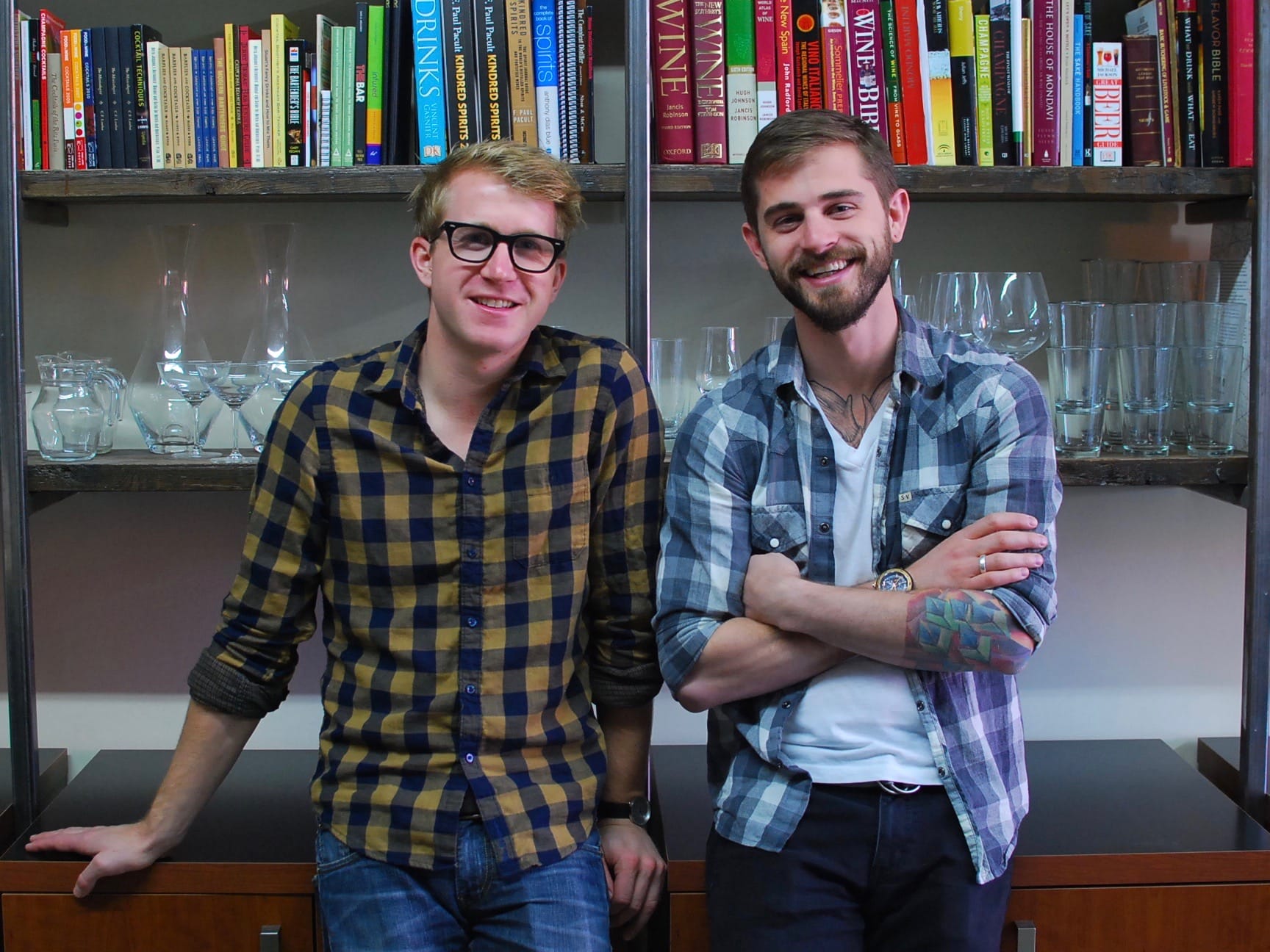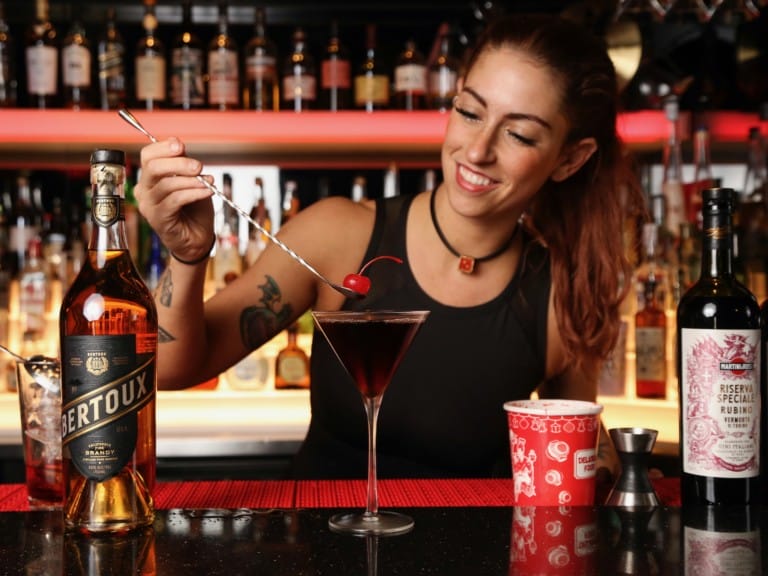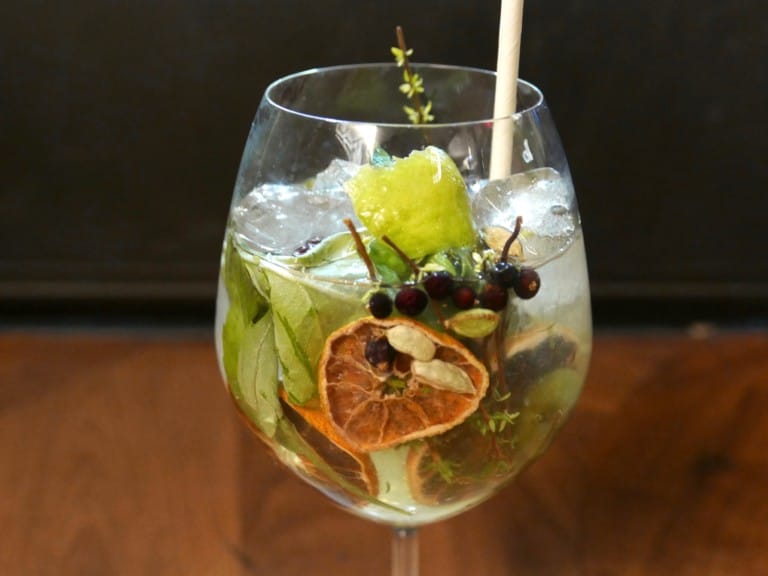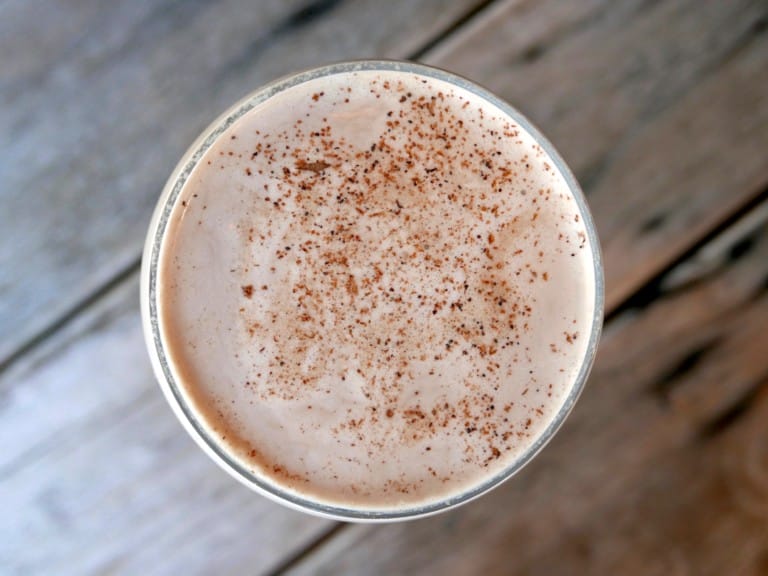INTERVIEW CONTINUED FROM PREVIOUS PAGE
You’re working on a project in India. What are the challenges of working on a project in a completely different culture?
Day: It can be extremely intimidating. The short answer. The challenge and sometimes the failure of doing something like that is the impulse to insert something that you as the vehicle for whatever that program is, or that consulting, using the things you’re very comfortable with, and putting those in play. Say, like, “Here’s my version of a daiquiri. Therefore here it is for you.” But if you look into the variables that exist within these types of programs, you have to by necessity use the things that are around. So if you want to make a daiquiri, you don’t have the limes that you’re used to having, not only in America, and not only in Southern California, but really any European western notion of, “This is a lime. This is how it tastes. This is the brix and Ph levels. This is how it interacts with sugar.” Sorry, that’s gone. You have something that tastes different. It’s similar, but it’s different, so you need to change around your entire attitude and readjust. And that can be daunting, that can be terrifying, but it really just requires focusing and having really good systems.
Kaplan: And then service. Service culture is extremely different all over the world.
Day: In the last year, we’ve done work through Proprietors in Hong Kong, Singapore, Thailand, and now in India, to say nothing of doing some work on an event level in Europe, a little bit, and obviously a lot in the States, every place is completely different. Service culture’s different, how you train people is different, people’s familiarity with your language – and therefore how you educate somebody – say something like fermentation and what a spirit is – you really have to be able to communicate in an effective way and engender that kind of passion.
How do you go about acclimating yourself when you’re in these places? Do you have points of contact that help clue you in about cultural differences?
Kaplan: Absolutely. That’s huge, and then you immerse yourself in it, obviously, which is to say you go eat and talk and find people that are of a like mindset, and similar backgrounds. You find bartenders and other people in hospitality. But it goes back to, “What’s the climate like?” We participated in a Copenhagen cocktail event earlier this year. It’s freezing cold and dark half the year, so they don’t go out that much. That’s it, so the bars are only open at certain times. What are their employment regulations? That changes what the bartender’s skill set and what their passion can be. If it’s dependent on tips or not, and what’s their workforce like? In India, you can have as many employees as you want because they have such a huge workforce. You can afford so many people because the salary’s so low by comparison to Western standards.
How did your Mumbai project come about? Is it a restaurant?
Day: It is. It’s a stand-alone restaurant with a big emphasis on the bar program, as well as the food program.
Kaplan: It’s defined itself as a restaurant.
Day: The creative charge, and the drive for this project is led by amazing guy, Rohan Talwar.
Kaplan: His company is IB Hospitality.
Based out of?
Kaplan: Based out of Bombay.
Day: He’s a gentleman who grew up traveling the world quite a bit, spending a lot of time in London, went to Carnegie-Mellon, and I think his time traveling, especially in Europe and America, informed this incredible excitement and passion about food, and dining, and fine dining in particular. He returned to India and doesn’t really like much of what’s going on there, and wanted to change that, not only for himself, but for his friends who are very like minded. They’re a very affluent group of people who travel the world a lot and are very savvy, and really do have an eye and a taste for quality. They wanted to bring that to them.
Kaplan: He has the passion and saw the marketplace there.
So he reached out to you?
Kaplan: Yeah, he reached out to us. The interesting thing is that he reached out to Proprietors LLC, and Proprietors has very much just been – up until the past four or five months – mostly just a referral type business. We didn’t have a real presence online. Our website is just now built out. It was surprising to get this just out of the blue e-mail to Proprietors, to Alex and myself. Oftentimes people will hear about Alex from his speaking engagements, or they’ll hear about both of us from our past at Death & Co. Rohan reached out to us at Proprietors, and knowing how many people entertain the idea of this – by this, I mean getting into hospitality – and how much sort of smoke and talk there is around that – we didn’t really know how to respond for a couple weeks, to be honest. When we did respond, we looked at each other and were like, “Oh, I don’t think we ever got back to that two-sentence e-mail about India.” We obviously pride ourselves on professionalism. “We should, at the very least, send our information along.” Immediately, as soon as we hit send, we got an e-mail back, “Can you hop on a phone call?” We chatted with Rohan, and it turned out that he and his entire core team, they were going to be out in L.A. five days after our first talk. We set up a meeting at SoHo House, West Hollywood, and he was like, “Next week, I’m going to be in New York.” And I was going to be in New York on Death & Co. related business. I was like, “Oh, well, I’m happy to have this meeting. Then let’s sort of send around our ideas for engagement, and then we can have a follow-up meeting at Death & Co.” We did that and I took them out in New York. That was pretty much it.
Day: It became very clear that our collective vision and interest in the hospitality industry aligned in a very productive way. Rohan sees restaurants in very much the same way that we do, as an incredible opportunity to make exceptional experiences, and to change people’s lives. At the end of the day, that’s what we all want to do. We’re very, very good friends with him and definitely see him as a peer. We’ll – if all things go correctly – work on many things together in the future.
Is this his first restaurant project?
Day: Yes.
Kaplan: He’s a young guy, and he has the support of his family. Going into this, his family wanted to get into hospitality as well. I think to Alex’s point, the amazing opportunity that Proprietors has seen, especially being a referral type company, is that – with possibly one exception on our track record – only worked with people and companies – large or small – that are fanatical in their passion and their drive for hospitality. From Rosa Mexicano to Stella Rosa – which is Lettuce Entertain You Group – to our work with Demi Monde in New York – and what Alex was talking about with Rohan and IB Hospitality and our new project in Jackson Hole with Dom Gagliardi. He’s the head of the project.
Are the two of you owners in Demi Monde, or are you consulting on it?
Kaplan: We’re partners in Demi Monde. Our main partner, David Blatt, him and his partner, Chris Nagy – Chris sort of advised him in how was out there in the space of capable operators for executing something on this scale. I’ve known Chris for a number of years, so we started that conversation, and I said, “Look, for something of this size and scope, this is what we can do for you.” It’s one of those things where we’re not only getting involved with people that share our passion, we’re saying that we don’t do anything for short term. This is kind of what we can do as a company. This is kind of what we can do as individuals. This is how this sort of breaks down. We love to participate in this in sort of a larger way, and that’s sort of where the conversation with Demi Monde led. That is certainly one of the most intensely complicated, fantastic, amazing projects that both of us has participated in.
How long has that been in the works for?
Kaplan: From the beginning conversation to now, it’s been eight months.
Why the name Demi Monde?
Day: Demi Monde is this wonderful phrase that of course has literary connotations in French literature. It has this modern understanding of culture, of a particular culture, literally meaning “half world,” but it speaks to a life of somewhat excess, somewhat on the periphery of accepted society, but still existing within it. That notion really appealed to us, not only from the standpoint of the idea of demi monde, but an odd tilt or tip of the hat to European culture that most of the time is never tapped. Often times here in America, they often reference high French dining. They don’t really reference, say, a Revolutionary mentality, or the cultural decrepitude that happened at the turn of the century, just amazing artistic innovation that happened, that was by no means within accepted society. It’s not necessarily just a European concept by any means, but it was an interesting time, and really how that translated to a modern context, a lot of the visual elements of the restaurant are really, really cool artistic references.
So you would describe it as a restaurant?
Kaplan: No. We both really struggle with the semantic game of a nightlife place. I would call this a nightlife destination. I call Death & Co. a nightlife destination.
Day: These are very different things.
Kaplan: I call Bar & Kitchen a restaurant. I do allow that acceptance of title in some things.
Is it possible for you to define that, or is it the people that go there?
Day: It almost seems like it’s better not to define it, and allow people to define it for themselves because a place like Demi Monde, as you will see after we open, it exists as many different things at different hours. Where it is – and we won’t speak more specifically, so we don’t form people’s opinions until people are there – but it will be many things throughout the course and throughout a night. From early on in the night, it can be a certain thing, and the feel and environment will present itself in a specific way, and that will evolve throughout the night.
What are the different elements then?
Kaplan: …Demi Monde is a nightlife destination in that we want to provide a place and a canvas for an experience that you don’t necessarily have to leave. It’s a restaurant, it’s a bar, it’s a cocktail lounge, it’s certainly something more. There’s an energy to it. There’s a freedom to the space that a lot of places in New York have forgotten, or they aren’t necessarily embracing right now. It plays this very complicated, interesting dance, and it’s also just an absolute, unequivocal celebration from our end in terms of hospitality and customer experience, because there are so many different ways…There’s a street level coffee bar – very, very small – the rest of the space is all below ground, down a wide set of stairs. Take two turns and it opens up into this room that has different elements to it. There’s one larger space, and within that, there’s different hospitality experiences that are provided, different styles and points of service within that, that are really interesting and very unique that allow for a play space, from our end, in terms of how rich can we get the service style here? How far can we go with it? I know those are obviously intended to be very nebulous answers.
Yes.
Day: You’ll have to come experience it.
What do you look for when you’re hiring somebody to work behind a bar, and is it different at Demi Monde than it would be at Death & Co.?
Day: It’s different.
Kaplan: The short answer is absolutely.
Day: It absolutely is, but the basic things are not, generally. We reference Danny Meyer a lot, and if you haven’t read his book…
…I did.
Day: His 51/49 rule, 51% personality, 49% skill. You can always teach someone a skill. It’s important, and a skill set can be very important, but a skill set isn’t vital to someone’s success within any position. But those things that we’re looking for, from people, are enthusiasm, interest, the ability to communicate, and of course based on what role they are, different levels of communication, and different expectations, of course. But the fact that somebody actually cares, you can see it too, when you meet somebody and talk to them face to face. Where do their eyes look, and how do they interact with people? Are they genuine in their responses? Are they active in seeking knowledge in other people too? The fact that they’re interested in other people means that they approach their relationships as a dialogue, and not necessarily as a monologue. There’s a back and forth between people, which is by far the most important part of the hospitality experience.
I was going to ask you about Handsome Coffee next.
Day: As far as Chapter & Verse, our great friends at Handsome are a part of this actual space, with us. We obviously have very similar philosophies as far as insane focus on detail and quality, I believe. We’re just very good friends with those guys, and they’re of course not at the roastery now. They saw a need to have a place outside of the insanity of what’s going on there to be able to train people, for Chris Owens to be able to come and cup for his roasts.
Will that be even after they open?
Day: Yeah. They have a dedicated desk here. They’re very much here with us.
Kaplan: For Michael Phillips to train, everything, they’re certainly participating in this space. In a small way, it made sense for both of our companies’ perspective. Incidentally, they make really good coffee.
When you’re not working, and you’re not out of town, what do you like drinking, and where do you like to drink in L.A.? I imagine there’s some overlap, some differences.
Day: There’s constant overlap. My absolutely favorite drinking experience is wrapped up in my absolute favorite eating experience, and I’ll probably just say this in the spirit of Dave, because he’s probably going to say the same thing, is going to The Tasting Kitchen, having drinks with Justin and John – Devon’s not there anymore – before dinner. Awesome. Delicious. Having Sol take care of us with wine during dinner, stuff that I never have seen or heard of. No matter how much I try to learn, he always pulls out really cool stuff that always changes my opinion on wine. Before you had Maxwell there. And of course the food is just ridiculous. That would be my personal favorite.
Kaplan: If I’m going for a whole culinary evening, Tasting Kitchen, I love. Casey’s phenomenal. If I’m going just for drinks, I absolutely love The Varnish. We all do. We’re all downtown and we’re all just family. That’s home base for drinking culture in L.A. Absolutely. And if I’m going for a relaxed night, where I just want to go out and have fun, knowing there’s going to be people that I love and I enjoy seeing, in an environment that I think was really well put together to provide for a great evening, and to provide for a really fun experience, I go to Harvard & Stone. That place acknowledges fun in the evening extremely well. I go to The Varnish for a great cocktail, and to have a great conversation with friends I love. At Harvard & Stone, I think Johnny and Mark Houston really understand that they’re just there to provide for a fun experience. I think they know that their cocktails aren’t the best in town, but they have cocktails. I think they know they don’t have the best spirits anywhere, but they have some great spirits. They do know that we can provide the canvas for a great evening and a great party. That was a really great moment for me, and that’s been very impactful for me personally to see how they do that, because I think they do that exquisitely. There’s a bunch. Another great moment for me – it’s probably funny for me to say in any sort of quoted print.
Day: Don’t say it.
Kaplan: No, I’m gonna. A great moment for me was a year-and-a-half ago and it was Valentine’s Day, and I was with my girlfriend at the time, we had a great Valentine’s Day, and then a bunch of friends of ours from Bar & Kitchen were out at La Cita for Moustache Mondays. I went, and it’s the only time I’ve been to La Cita. I’m going for a dance party this Thursday, because Matt is a friend and I think he does amazing stuff…I was like, “This is a canvas for fun. They’re just providing a canvas for fun.” We forget that sometimes, and that was really refreshing to see. There are so many places in L.A. that are awesome.









Leave a Comment